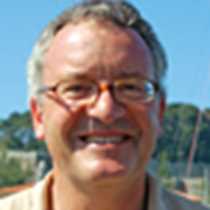Oporto
Our final full day of the voyage saw us arrive in Portugal, the seventh nation state to be visited on our European Odyssey. Oporto is Portugal’s second city, its historic centre now inscribed on the UNESCO list of World Heritage sites. We quickly came to see why at our first stop which provided an opportunity to overlook the River Douro which cuts dramatically through the attractive urban townscape. On the far bank of the river we could see the numerous port lodges which have provoked global publicity for this city over several centuries.
Portugal moved centre stage in the sixteenth-century Age of Discovery, as its explores edged down the west coast of Africa eventually to secure a sea route around the Cape of Good Hope and across the Indian Ocean to Calicut. Portuguese became of the world’s great regional languages, with speakers on every populated continent. The church of St Francis, with its elaborate baroque decoration of gold and silver speaks eloquently of the wealth from South America that flowed rapidly into the Iberian continent in its golden age. Our tour of the Sandeman port wine lodge introduced us stylishly to this wonderful product, the great barrels of maturing wine providing excellent photo opportunities. The tasting session was much appreciated, with the aperitif version coming at a timely moment.
An afternoon at sea en route to Lisbon provided time for reflection, between packing and the settling of accounts. Since our arrival in Copenhagen we have never been outside the jurisdiction of the European Union, the world’s largest economic unit comprising some 455 million people. Aptly described as “the world’s most successful mechanism for peaceful regime change” it came into existence following the destruction that two world wars had wreaked on the continent. The idea behind the European project was not to unite Europe in order to commemorate a noble past but rather to ensure the trauma of the past would never again be repeated. The goal of peace was to be achieved by integrating the economies of the old nation states so that by 2007 some 27 such states formed a single market, their citizens enjoying common rights, reciprocal services and sharing common passports. We had seen and heard a great deal of those destructive wars in the course of our voyage but also sensed the pride of a new generation of Europeans in their heritage and post-war prosperity.




